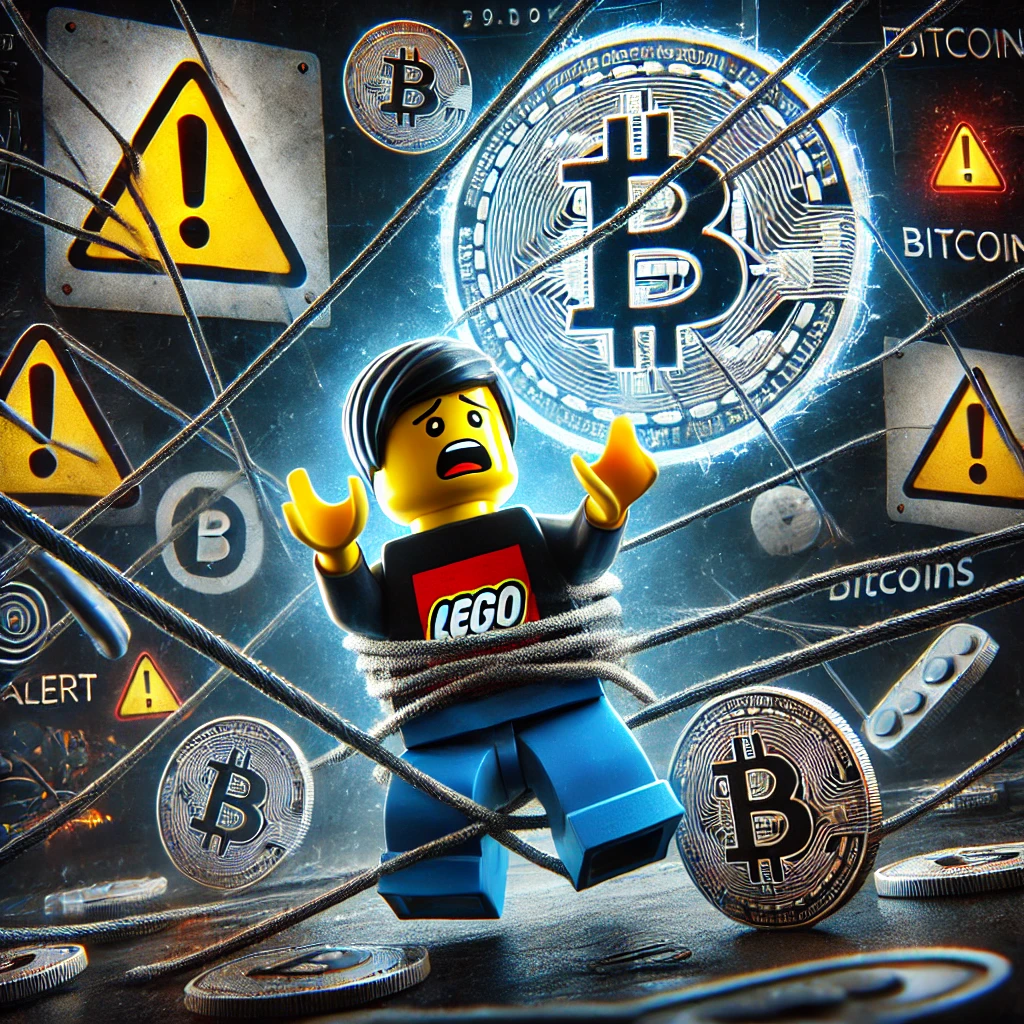On October 4, Lego’s website displayed an unexpected message urging users to purchase a “Lego coin,” promising exclusive rewards for those who did. However, Lego had no plans to launch its cryptocurrency, making it clear this was a scam.
The message redirected users to a site offering Ethereum-based “LEGO Tokens,” signalling a cyberattack, as reported by The Brick Fan.
Lego’s website was hacked and used to promote cryptocurrency fraud to cautious fans and consumers. Some people, especially those on the Lego subreddit, were concerned about the banner and links because the incident happened at Lego’s headquarters in Denmark in the evening hours.
Read also: Mybitstore launches in Nigeria, simplifying Bitcoin trading
Lego’s response to hack restores customer confidence
Lego responded quickly to the breach in Denmark overnight. Companies promptly removed banners and false links. Returning Lego and Fortnite cooperation banners and “buy now” links direct users to the proper goods. After realising the problem, Lego removed the banner and fake links to restore authentic collaboration and send users to safe products.
In a reassuring statement to its customer base, Lego confirmed that the breach did not compromise user accounts. Although the company did not disclose specific details about the cause of the intrusion, it did emphasise that the problem had been identified and steps were being taken to prevent future incidents. Lego’s proactive measures included tightening security protocols and monitoring their online platforms more closely.
While Lego has chosen not to reveal the exact nature of the intrusion or the technical steps being taken to safeguard against future attacks, its rapid response demonstrates a solid commitment to customer security and trust.
This incident underscores the increasing importance of cybersecurity, particularly for high-profile brands that rely heavily on online sales and partnerships. By acting swiftly and decisively, Lego has managed to reassure its customers while continuing to protect its digital assets and partnerships from potential threats.
Read also: LEGO Fortnite sets launch: Battle Bus and more
Official response from Lego on hack
LEGO stated, “On October 5, 2024 (October 4 PM in the US), an unauthorised banner momentarily displayed on LEGO.com. The issue was remedied after its swift removal. No user accounts were compromised, so shoppers can continue buying. We found the problem and are taking steps to prevent it.”
Even while the corporation responded quickly, the incident raised concerns about website security and the vulnerability of well-known brands to hackers. With more businesses going online and handling sensitive client data, security is more important than ever. Lego promises to protect customer data, but it is still being determined what adjustments it will make to its digital defences.
Site visitors may shop confidently, knowing the issue was resolved and no personal data was compromised.
Lego’s quick response to the cybersecurity breach reflects its commitment to safeguarding customer trust and data. While the company has successfully resolved the issue without compromising user accounts, the incident serves as a reminder of the growing vulnerability even well-established brands face in the digital age. As businesses increasingly rely on online platforms, enhancing security measures is crucial to protect against future cyber threats. Lego’s assurance of improved defences underscores the importance of vigilance and proactive action in the face of evolving online risks.




